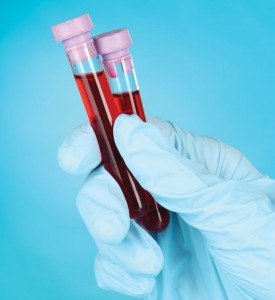Healthcare with Confidence
Transplantation of stem cells or bone marrow is a complex and unique treatments that can cause many side effects. The main risks associated with the transplantation of stem cells or bone marrow, occur during the healing of the bone marrow, such as bleeding or infection that could endanger the patient’s life.

⇒ To get a Leading Doctor Second Opinion
Transplant rejection. When allogeneic transplantation can develop the graft -versus-host disease (GVHD) in which lymphocytes (white blood cells) are resistant to patient bone marrow. Thus, it may cause rejection of the transplanted bone marrow. The disease manifests diarrhea, rash, liver damage, and sometimes it is very dangerous to life. It can also appear in a chronic form, and later, from three to six months after implantation. It is characterized by chronic changes in the skin, mucous membranes in the mouth, eyes, vagina in women, and liver damage.
But sometimes it is even advantageous disease organism, because some of the cells involved in the immune attack on the cancer cells remaining in the body after chemotherapy.
Ineffectual transplantation. In very rare cases, bone marrow or stem cells do not begin to produce new blood cells (transplantation is not successful). In this case, it may be required to re-receive a dose of stem cells or bone marrow from the same donor, or from a different donor or frozen progenitor cells of the patient, if any.
Age and general condition. The age and general condition of the patient will also affect the risks, complications and side effects associated with the transplant. The patient must carefully consider the benefits of treatment versus the risks.
When deciding on treatment, the doctor takes into account the patient’s age, general condition and the chances of recurrence. The received upper age limit is 65 – 70 years old as in later age is greatly increased risk of side effects or even death.
There are restrictions on the transplant for a donor as well. Donor should not be older than 45-50 years, as age increases the risk of the effect of “graft versus host”.
Infertility. It is important to understand that intensive therapy transplantation can lead to infertility in men and women. Therefore, prior to transplantation should be discussed with your doctor the risks. The risk of infertility in allogeneic transplants even higher.
Any patient with a diagnosis of oncology, who is faced chemotherapy or radiation treatment, risks losing the function of fertility temporarily or permanently.
Therefore, we recommend that every patient of childbearing age to freeze sperm or eggs before starting treatment, for use in the future. In the case of teenagers, parents will be asked to give its permit to consider the possibility of freezing the sperm or egg of their child.
Anemia. Since the number of red blood cells (hemoglobin) after treatment, usually reduced, it may be anemia. It causes strong tiredness. Some patients require regular blood transfusions until their body will not be able to produce red blood cells at the desired level.
⇒ Preparation and transplantation stages
⇒ Experts in stem cell treatment
The Institute of Hematology of the Assuta Medical Center provides a comprehensive professional solution in all areas of hematology, including the diagnosis and treatment of hematological malignancies, benign hematologic diseases, blood diseases and blood clotting problems, as well as bone marrow transplantation.
The Institute includes a hematology clinic, a stationary department and a outpatient department.
⇒ For more information about the Institute of Hematology Assuta and its specialists.









